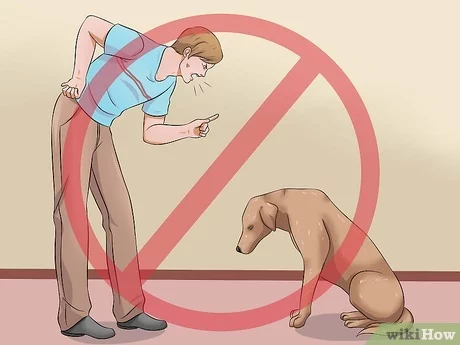Why Does My Dog Gag
Why Does My Dog Gag: Understanding the Causes and Solutions
Dogs are beloved members of many families, providing companionship, protection, and joy. However, they can also be a source of worry and frustration when they display unexpected or unpleasant behaviors, such as gagging. If you have ever wondered “why does my dog gag” and what you can do about it, this article is for you. By exploring the common reasons for dog gagging and offering practical tips to address them, you can help your furry friend feel better and improve your relationship with him or her.
What Is Gagging in Dogs?
Before we delve into the causes of dog gagging, let’s clarify what it means. Gagging is a reflexive action that involves the contraction of the throat muscles and the expulsion of air from the lungs in response to an irritant or obstruction. Unlike coughing, which is a rapid series of expirations aimed at clearing the respiratory tract, gagging is more forceful and prolonged, often accompanied by retching or vomiting.
While occasional gagging may be normal in dogs, especially if they eat too fast or swallow something unusual, persistent or severe gagging can indicate an underlying health problem that requires attention. Therefore, it’s important to observe your dog’s behavior and seek veterinary advice if you notice any worrisome signs.
Causes of Dog Gagging
Now that you know what dog gagging looks like, let’s explore some possible reasons why dogs might do it. Keep in mind that this list is not exhaustive nor definitive; each case is unique and may involve multiple factors.
1. Foreign objects
One of the most common causes of dog gagging is the presence of foreign objects in their mouth or throat. Dogs are curious creatures who love to explore their environment with their mouths, so they may accidentally swallow items such as toys, bones, sticks, rocks, or even clothing. These objects can get stuck in their esophagus, trachea, or stomach, causing irritation, inflammation, or obstruction that triggers gagging.
If you suspect that your dog has swallowed something he or she shouldn’t have, don’t try to remove it yourself unless you are trained and equipped to do so. Instead, take your dog to a veterinarian who can perform diagnostic tests such as X-rays, ultrasound, or endoscopy to locate and extract the foreign object safely.
2. Respiratory infections
Another common cause of dog gagging is respiratory infections such as kennel cough, bronchitis, pneumonia, or sinusitis. These conditions can affect dogs of all ages and breeds and are usually caused by viruses or bacteria that irritate the airways and produce mucus or pus. The resulting coughing and gagging may be accompanied by other symptoms such as sneezing, wheezing, lethargy, fever, loss of appetite, or nasal discharge.
Although some mild respiratory infections may resolve on their own with rest and supportive care, more severe or chronic cases may require antibiotics or other medications prescribed by a veterinarian. It’s also important to isolate infected dogs from healthy ones to prevent further spread of the disease.
3. Allergies
Allergies are another possible cause of dog gagging, especially if they affect the respiratory system or the digestive system. Dogs can be allergic to various substances such as pollen, dust mites, mold spores, food ingredients (e.g., wheat, soy), flea saliva, or grooming products. When exposed to these allergens, dogs may develop an immune reaction that inflames the airways or triggers vomiting and diarrhea.
If you suspect that your dog has allergies, talk to a veterinarian about how to diagnose and treat them. Depending on the type and severity of the allergies, your vet may recommend antihistamines, steroids, allergy shots, or dietary changes. You may also need to reduce your dog’s exposure to the allergens by cleaning your home more frequently, using air filters, or avoiding certain outdoor activities during peak allergy seasons.
4. Heart disease
Heart disease is a less common but serious cause of dog gagging, especially in older dogs or those with certain breeds predispositions (e.g., Cavalier King Charles Spaniels). When the heart fails to pump blood efficiently, it can lead to fluid accumulation in the lungs (pulmonary edema) or in the abdomen (ascites) that can interfere with breathing and digestion. Dogs with heart disease may also display other symptoms such as coughing, lethargy, decreased appetite, or weakness.
If you suspect that your dog has heart disease, take him or her to a veterinarian as soon as possible for a thorough examination and diagnostic tests such as chest X-rays, electrocardiogram (ECG), or echocardiography. Depending on the severity and type of heart disease, your vet may recommend medications such as diuretics, ACE inhibitors, or beta-blockers to manage the symptoms and improve the quality of life of your dog.
5. Other causes
While the above causes are some of the most common reasons why dogs gag, there are many other possible factors that can contribute to this behavior. For example, gastroesophageal reflux disease (GERD), which occurs when stomach acid flows back into the esophagus and throat, can cause gagging and regurgitation in dogs. Similarly, dental problems such as tooth decay or abscesses can lead to oral pain and discomfort that may trigger gagging. Even emotional stressors such as separation anxiety or fear can manifest in physical symptoms such as gagging.
Therefore, if your dog gags frequently or intensely without an obvious explanation, it’s best to consult a veterinarian who can perform a comprehensive medical and behavioral evaluation. By ruling out or treating any underlying health issues, you can help your dog feel more comfortable and prevent any potential complications.
Solutions for Dog Gagging
Now that you know some of the reasons why dogs gag, let’s explore some practical solutions to address this behavior. Keep in mind that these tips are not a substitute for veterinary advice and may not work for all dogs or cases. Therefore, it’s always best to consult a veterinarian before trying anything new with your dog.
1. Remove objects
If you suspect that your dog is gagging because of a foreign object stuck in his or her mouth or throat, try to remove it gently and safely. You can use tweezers, pliers, or your fingers (if small enough) to grasp the object and pull it out without pushing it further down. However, be careful not to damage your dog’s delicate tissues or cause choking by applying too much force or inserting objects blindly.
If you cannot remove the object yourself or if your dog is showing signs of distress such as difficulty breathing, drooling excessively, or collapsing, take him or her to a veterinarian immediately. Depending on the location and nature of the object, your vet may need to sedate your dog or perform surgery to remove it.
2. Treat infections
If your dog is gagging because of a respiratory infection such as kennel cough, follow your veterinarian’s instructions on how to manage it at home. This may include rest, hydration, humidification, cough suppressants, antibiotics (if bacterial), and isolation from other dogs until the symptoms subside.
You can also try some natural remedies to soothe your dog’s throat and boost his or her immune system. For example, you can give him or her honey (not for puppies under 1 year old), coconut oil (in small amounts), chicken broth (unsalted), or echinacea tea (cooled and diluted). However, always check with your vet before giving any new food or supplement to your dog, especially if he or she has a medical condition or is taking medication.
3. Manage allergies
If your dog is gagging because of allergies, talk to your veterinarian about how to identify and manage them effectively. This may involve allergy testing (blood or skin) to pinpoint the triggers and desensitization therapy (immunotherapy) to reduce the sensitivity over time.
You can also try some home remedies to ease your dog’s symptoms and improve his or her skin and coat health. For example, you can bathe him or her regularly with mild shampoo (oatmeal-based), wipe him or her down with a damp cloth after outdoor activities, use hypoallergenic bedding and toys, or feed him or her a high-quality diet that avoids common allergens. However, again, always consult with your vet before making any changes to your dog’s diet or environment.
4. Provide dental care
If your dog is gagging because of dental problems such as tooth decay or gum disease, take him or her to a veterinarian for a dental check-up and cleaning. Your vet may need to extract damaged teeth, treat infections, or recommend preventive measures such as brushing your dog’s teeth daily, offering dental chews or toys, and feeding dry kibble instead of wet food.
You can also try some natural remedies to freshen your dog’s breath and promote oral health. For example, you can give him or her parsley (fresh or dried), green tea (cooled), coconut oil (in small amounts), or apple cider vinegar (diluted in water). However, do not rely on these remedies alone to solve serious dental issues; always seek veterinary advice first.
5. Reduce stress
If your dog is gagging because of emotional stressors such as separation anxiety or fear, try to identify the triggers and address them proactively. For example, you can provide your dog with a safe and comfortable space (e.g., crate, bed), offer him or her plenty of exercise and playtime, use calming aids such as pheromone sprays or diffusers, or seek professional help from a dog trainer or behaviorist.
You can also try some natural remedies to calm your dog’s nerves and promote relaxation. For example, you can give him or her chamomile tea (cooled and diluted), lavender oil (diluted and applied topically), or music therapy (calming sounds). However, do not rely on these remedies alone to solve serious behavioral issues; always seek professional advice first.
Conclusion
Dog gagging can be a sign of various health problems that require attention and care. By understanding the common causes of dog gagging and offering practical solutions to address them, you can help your furry friend feel better and improve his or her quality of life. Remember to observe your dog’s behavior closely, consult a veterinarian regularly, and maintain a healthy and happy relationship with him or her. After all, dogs are not just pets but family members who deserve our love and respect.



